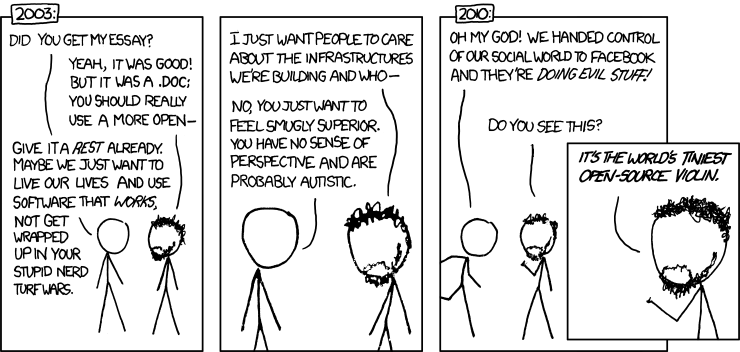Excellent example of market failure
Nov. 19th, 2012 11:55 amI have an excellent a clear-cut example of the market can fail both workers and consumers in the service of owners.
Target is currently facing a fairly large petition to not open until a reasonable hour on Black Friday so its employees can actually spend Thanksgiving with family. You might think this is just a workers issue, but it isn't. Many consumers have signed this petition, and the general trend of retail outlets opening earlier and earlier on Black Friday is anti-consumer.
And here's why. Basically people show up early to make sure they can get certain gifts before they're sold out. For those people, it's very worth it to show up before the store opens to make sure they get their chosen gift.
But each store then has an incentive to open before the others. The first store that opens gets the lions share of those consumers.
But those consumers don't actually want to wake up at 3am to get to the store before it opens. They'd be much happier waking up at 6am, or even later. But because the stores are now competing with each other to open earlier, they are forced to choose between getting the gift they want or waking up extremely early to get to the store to make sure it's not out of stock.
The 'invisible hand' of the market creates a destructive cycle that's bad for everybody.
I'm not certain what a good solution to this problem is. One would hope a gentleman's agreement on a decent opening time would work. But I doubt it would. Especially since front-line store employees have little input into honoring these sorts of agreements.
But the point is here that the free market creates a situation in which both consumers and employees get the short end of the stick. They both end up in a situation neither of them desire.
